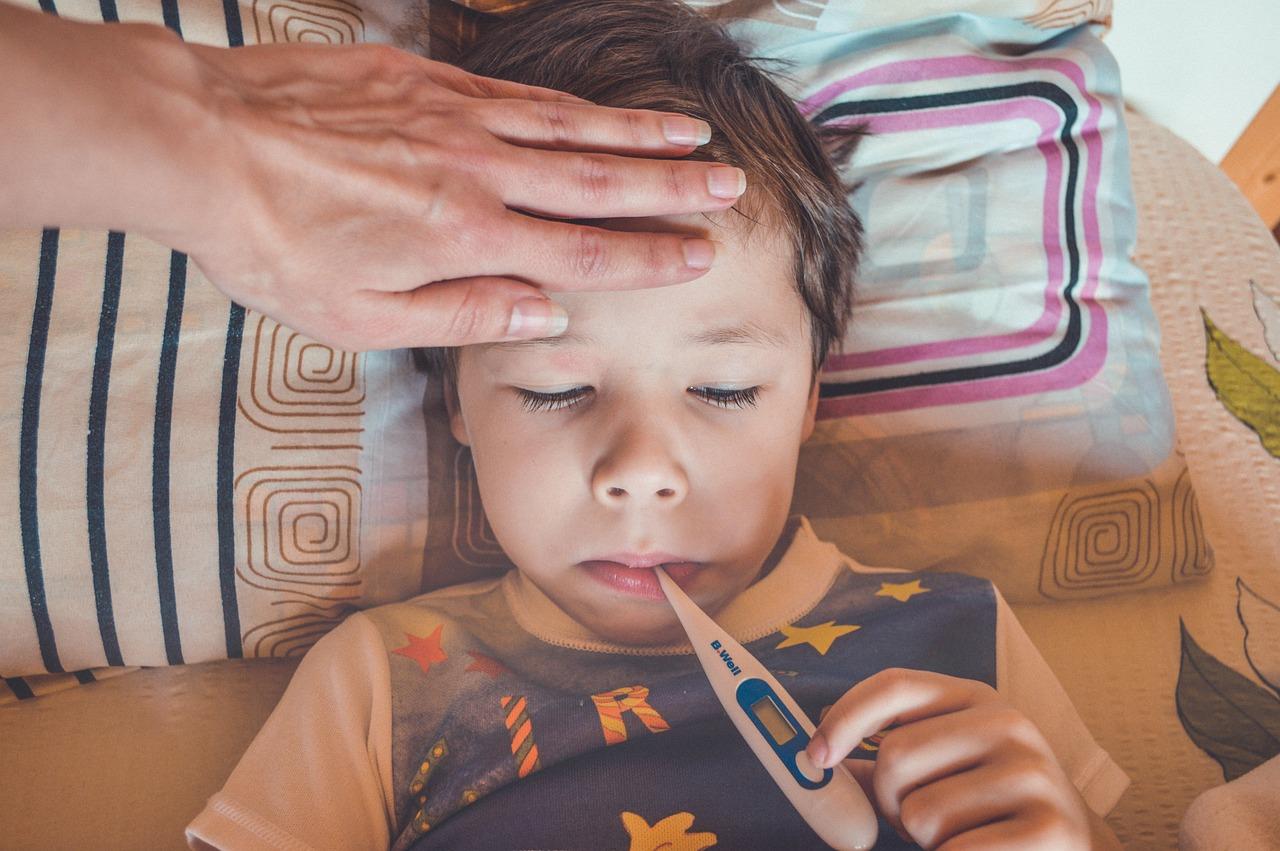Researchers at the University of Michigan have found that parents give medicines to their children even when their temperatures are only slightly elevated. Even without knowing the proper medication, one in three parents gives medicines to reduce the temperature when it is below 100.4 Fahrenheit (38 degrees Celsius) which is not advisable.
Image credits Pixabay
Parents think a little increase in temperature is a fever and harmful to their children but that’s not always true. Sometimes a low-grade fever, i.e, the temperature slightly above the normal temperature, helps in fighting the infections by restraining organisms from entering the body or killing them at the point of entry. Some parents become impatient and tensed to see the increased temperature. To make the temperature dip, they give medicines without prescription which does not help in curing the illness, said pediatrician Susan Woolford, M.D, who was involved with the study. Medicines given to make the child feel comfortable can not only have side effects but can even prove to be harmful.
How types of thermometers influence parental decisions?
Image credits Pexels
The study is based on the 1,376 responses received from parents of children aged 12 and under. Two in three parents were sure if their child needed medication to reduce the temperature but only half of them were aware that the readings obtained from the thermometers can vary based on the methods used. Most parents measured the temperature by placing the thermometer on the forehead or in the mouth while less than a sixth kept it under the ear, arm or in the rectum. Contact thermometers detect temperature through electronic heat sensors. However, these temperatures can change depending on the technique of their detection. Remote or contact thermometers can be precise when used correctly while forehead readings may be inaccurate if the scanner is too far or the forehead is sweaty. Meanwhile, ear readings can also be incorrect because of earwax. The armpit temperatures have the least accuracy while oral temperatures record correct temperature when the thermometer is tightly held up. Most of the parents try to reduce the temperature by covering the head with a cool water cloth and giving doses if the situation persists. Parents look at low-grade fever as a disease, however, it is only a normal body process at work.
How does fever help in curing infections?
In most cases, fever works as a shield to protect the body from disease-causing viruses and bacteria. It is part of an immune response which also includes producing more WBCs and antibodies in the body. Medicines given to reduce discomfort can actually hamper correct diagnosis of the problem. Instead of repeating doses, parents should keep a record of temperature, avoiding over dosage, and noticing behavior of the child to help clinicians to diagnose the situation properly. There are many methods to tackle discomfort may be used. One is to keep the child’s room cool, make him wear light cotton clothes, and ensure that they are well hydrated with liquid or semi-liquid food whichever is suitable. For infants and children below the age of one, if symptoms of inactivity, irritability, and decrease in urine output are seen, parents should always consult a doctor.
If you enjoyed reading our articles please consider supporting us by buying our geeky merchandise on Instagram.
Alternatively you could Buy us a coffee or follow us on Facebook, Twitter, Pinterest or Medium!





